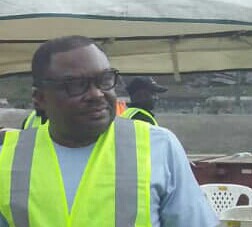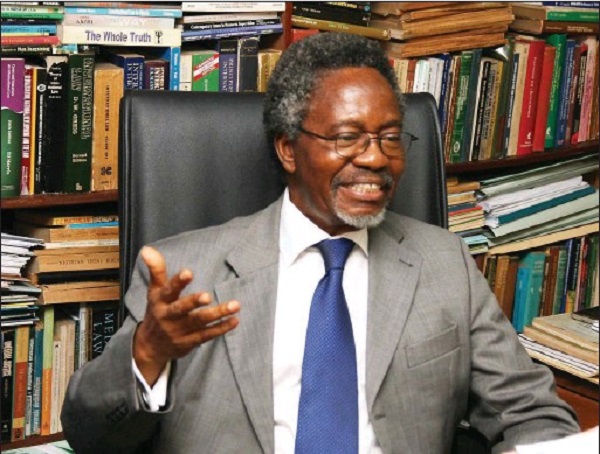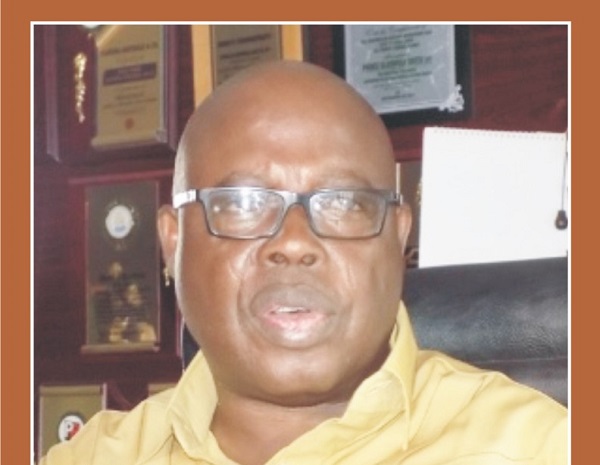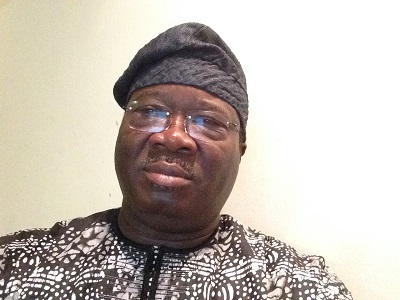Our Strategy To Prevent Congestion At Rivers Port – PTOL boss
By Kingsley Anaroke
Mr. Ephraim Efioita is the General Manager, Ports and Terminal Operators Limited (PTOL). The terminal commissioned two new reach stackers in Port Harcourt recently and MMS Plus was there to fetch you this interview. Efioita bares his mind on the recent activities at the Eastern ports, appraising the level of security, the recent 10% discount by Nigerian Ports Authority (NPA) on ship dues, the strategies to prevent port access road congestion in Port Harcourt. Excerpts:
Today, you’re launching new reach stackers. Does this imply that there has been increase in traffic at your terminals or why do you need new equipments?
The terminal had seven reach stackers before today. We have added these two to make the number nine. We also plan to add another three to take the total to twelve very soon.
Why do you need as many as twelve stackers?
It is because our facility is a multipurpose terminal. We handle all kinds of cargoes. At the moment, it is only RoRo cargoes that we don’t have in the port. We have break bulk and we have bulk containers coming in. The other equipment we are considering may not only be reach stackers. They may be cranes and those cranes can be used for general cargoes.
With regards to the reach stackers, we have our yards scattered. We have the big yard at the headquarters and two other yards within the port. It wouldn’t be convenient to move these equipment from one yard to another, so we need to station some of the plants at the various yards while others would be working at the ship side.
What’s the current state of security at the ports and the waterways with regards to piracy?
I’ve not heard of any security issue since my arrival but I’m barely ten weeks old here. However, I learnt that there was so much insecurity on the waterways in the past. So, I’ll say it’s been abated and when it comes to security, we should be careful with the kind of information we are giving out. If it is abated, we should say it is abated. We must not keep talking based on the past experience, otherwise, we would send out wrong signals and that is why ship-owners impose all kinds of surcharges on vessels coming to our ports. I can say authoritatively that since my arrival here I haven’t heard of any security issue such as attacks on any vessel or at the terminals.
You should also note that most of the vessels owners have placed armed guards on board their vessels so that could have been a factor that helped ameliorate the issue of insecurity.
Last month, NPA introduced 10% discount on ship dues for vessels coming to the Eastern ports. How has this affected your operations?
I wouldn’t know how this has affected our operations because we are terminal operators and not shipping companies. However, I would say that we are experiencing more vessels asking to come to our terminal.
This year, Mediterranean Shipping Company (MSC) became interested in bringing in container vessels to the terminal. When I arrived here, they were bringing in one but they now bring two vessels into the port at the same time. I believe that we are going to have more patronage because we are improving our services. I wouldn’t be quick to attribute the increase in traffic to the waivers or discount on the part of NPA because it could have been several other factors. One of these factors could be the traffic congestion at Lagos ports and the environs.
Ship owners may just have realized that they could have good services here in Port Harcourt and our charges are very commendable. The charges are quite low compared to what is obtainable in other terminals.
Have you done the comparative analysis of this because it could help in your marketing drive?
We are re-engineering this terminal in the sense that apart from the equipment that we are bring in, we have also brought in some very experienced hands. We didn’t have the requisite personnel for port operations and cargo operations in the past but we have veterans now. We have also employed a statistician. One of the tasks that the statistician has is to ensure that he publishes statistical data for analysis and comparison of our terminal to other terminal operators. This would help us develop our Key Performance Indicators (KPI).
Would these statistics also be published on your website?
Yes it would. That is also an area that we are looking into. We are working on our website and we have set timelines to achieve them. These are some of the factors that we have to consider as we work towards making the terminal one of the best in the country.
We want to have a terminal operating system that makes every aspect of port operations seamless. The terminal operating system would be developed in a way that users of our services don’t need to come to the terminal. They should be able to do business with us from the comfort of their offices or homes. The necessary procedures should be available on our website. Our customers should be able to see it, just as journalists should be able to appraise our activities from our website.
I observed some vehicles parking on the port access roads like Lagos ports. Is this a result of increased traffic at the port?
I wouldn’t say the vehicles parked on the road are as a result of any congestion inside or around the ports. Sometimes, you find them parked on the road because they are waiting for one document or the other to enable them proceed on their jobs either in the ports or outside the ports. There are just a few vehicles on the road and I don’t think it is anything to worry about.
However, we are aware of the need to have a truck park and we are discussing with one of the neighbouring jetties that has a large space. We want to work together in order to utilize the available space as a truck park and we can also use the area to stack empty containers. These are some of the plans we have and we expect them to materialize within the next three months.
You have about three different spaces that make up the terminal. What is the total capacity?
This development is probably because we are becoming a container terminal, so we are putting measures in place to enable us efficiently handle containers at this place. Before now, the yard wasn’t marked.
We are marking it at the moment so I can’t give the exact capacity. When we are done marking, we would publicize the capacity. However, I don’t expect the capacity to be anything less than 6,000 TEUs.
Do you also handle oil and gas related cargoes at PTOL?
In cargo morphology, there is nothing like oil and gas cargo. Somebody may have tried to smuggle in that term in, but there is really nothing like that. You have break bulk cargo and bulk cargo. The bulk cargo could be dry or wet. The dry cargo could come by way of general cargo or carried in containers. Our terminal is a multipurpose terminal so it can handle anything. Cargo owners are free to take their cargoes wherever they want and all types of cargoes can be received at this terminal. At PTOL, we have created space and we have all the necessary plans, personnel and equipment to enable us handle all cargoes.








